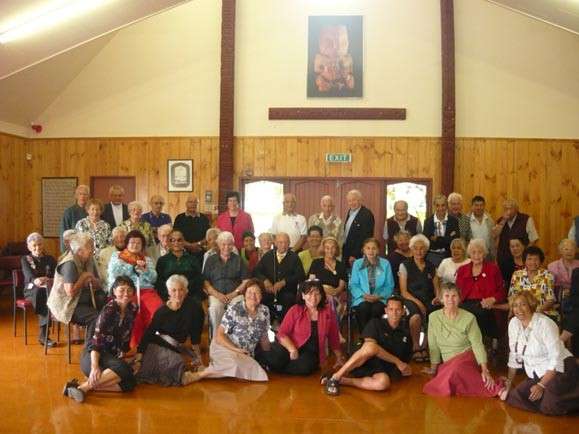Population ageing may lead to increased negative effects of dementia

A report into dementia in New Zealand has found that morbidity from chronic illness is worse for older people who also have dementia, and the ageing population will mean increased pressure on the health sector.
The report is part of the Te Puāwaitanga O Ngā Tapuwae Kia Ora Tonu: Life and Living in Advanced Age, a Cohort Study in New Zealand, otherwise known as LiLACS NZ. The longitudinal cohort study aims to determine the predictors of successful advanced ageing and understand the trajectories of health and wellbeing in a Māori and non-Māori New Zealand population in advanced age.
The aim of the LiLACS NZ research described in this report is to establish how the presence of dementia affects people and the services they use when they also have cardiovascular disease, chronic lung disease and diabetes mellitus.
For the study, all Māori aged 80 to 90 years and all non-Māori aged 85 years within the Bay of Plenty District Health Board (DHB) and Lakes DHB areas (excluding Taupo region) were asked to participate in the study. The first wave enrolled 937 people, 421 Māori and 516 non-Māori. There were 244 Māori women and 177 Māori men, and 279 non-Māori women and 237 non-Māori men. Each year some people left the study through death, ill-health or by choice. By Wave 4, a total of 438 (47% of Wave 1) people were interviewed. This comprised 161 Māori (39% of Wave 1) and 276 non-Māori (54% of Wave 1).
Every year those who undertook the full interview completed the Modified Mini Mental State Examination (3MS), a validated screening test for dementia. The 3MS gives a score out of 100, with a lower score meaning that the participant's cognition is worse and they are more likely to have dementia.
To understand best what score on the 3MS corresponded to a diagnosis of dementia Māori and non-Māori with a range of scores were interviewed by a dementia expert doctor using standard criteria to see if they really had a diagnosis of dementia or not. Scores on the 3MS were compared with the diagnosis of dementia for Māori and non- Māori to establish the best score for each group. The scores where dementia was present were higher for Māori than non- Māori. This may be because of disparities in socioeconomic status and educational achievement between Māori and non- Māori as both these factors impact the ability to complete cognitive tests.
A score of 80 or less for Māori and 84 or less for non-Māori indicates a significant likelihood that the participant has dementia. In Wave 1, 16 percent of all participants (19% of Māori and 14% of non-Māori) scored in the dementia range. Dementia was present in 26 percent of LiLACS NZ participants at some time in the study; some of those with scores in the dementia range improved over time.
The results showed dementia was associated with lower functional status, higher frailty and poorer mental health. It was also found to create higher use of health services and greater costs.
The report also covered the prevalence of three health conditions with dementia, cardiovascular disease (CVD) Chronic obstructive lung disease (CLD) and Diabetes mellitus (DM)
Of the three, CVD was the most prevalent. More than 50 percent of participants had CVD without dementia, while around 10 percent had both dementia and CVD.
Thirty percent of participants had CLD and around 10 percent had both dementia and CLD. And more than 20 percent had DM and 4 percent had DM and dementia.
There was no statistically significant difference in the prevalence of dementia between Māori and non-Māori, adjusting for age, sex and socioeconomic deprivation when using the differential cut scores on the 3MSE. Fifteen percent of women and 17 percent of men had dementia, which was not significantly different. Dementia did not vary by socioeconomic deprivation.
















